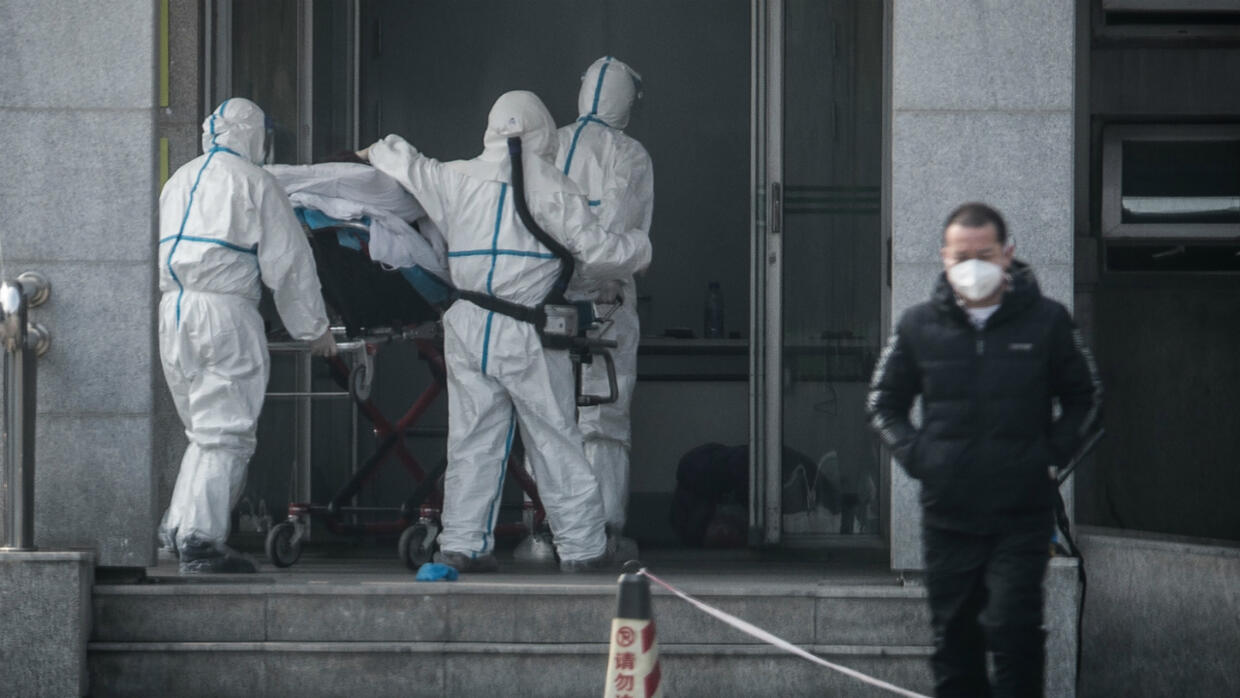China has taken a radical decision. Since 10:00 local time (2:00 GMT), Thursday January 23, no more train or plane should in principle leave the city of Wuhan located in the center of China.
The city on the banks of the Yangtze is at the heart of the coronavirus epidemic which since December has infected more than 500 people and left 17 dead, according to a last report released on Wednesday evening. All those who died died in Wuhan or its region.
"The residents must not leave Wuhan without specific reason," said the headquarters responsible for fighting the epidemic at the municipal level.
This decision is made to "effectively stop the spread of the virus," he said, as China prepares to enter its long New Year's holiday on Friday, which causes hundreds of millions of people each year. trips.
Since the decision was announced overnight, residents of Wuhan could not plan for a possible departure. In the early morning, it was still possible to leave the city by car, according to a reporter for the information website The Paper.
>> To read also: "Chinese Coronavirus: a 'first cousin' of SARS far from having revealed all its secrets"
Human-to-human transmission
At the motorway exits of the city, the police stopped certain vehicles in order to take the body temperature of the occupants, according to this source.
Queues formed in front of some gas stations, while many others ran out of fuel. It was still possible to reach the city by train or plane, even if many flights were canceled. But inside Wuhan, public transportation was stopped and the New Year's festivities were canceled.
The town hall also imposed the wearing of a respiratory mask, which most of the inhabitants had started to wear anyway since the beginning of the week.
The fight began when a Chinese scientist admitted that the virus could be transmitted from human to human and not just from animal to human. President Xi Jinping gave the signal for mobilization on Monday by calling for a "resolute" check on the epidemic, which until then had not made the headlines.
WHO postpones risk estimate by 24 hours
The World Health Organization (WHO) has postponed until Thursday its estimate of the risk posed by this epidemic, announced its director general Wednesday evening after an emergency meeting of a committee of experts.
"It is a decision that I take extremely seriously," said Tedros Adhanom Ghebreyesus, saying that he needed all the necessary assessments and information.
Meeting behind closed doors at WHO headquarters in Geneva, the sixteen experts of the commission, chaired by French Didier Houssin, were initially to determine this Wednesday whether the 2019-nCoV coronavirus epidemic constitutes a public health emergency of international concern . Their decision is therefore postponed by twenty-four hours.
"Our team is on the ground as we speak to investigate the epidemic and bring together more
", added the Director-General of WHO, stressing the" evolving and complex "nature of the situation and also expressing appreciation to Chinese President Xi Jinping and Prime Minister Li Keqiang for their cooperation.
In the past decade, WHO has declared this alert only five times. She has used it only for rare cases of epidemics requiring a vigorous global response, including the H1N1 swine flu in 2009, the Zika virus in 2016 and the Ebola fever, which ravaged part of West Africa. from 2014 to 2016 and the DRC since 2018.
With AFP and Reuters
The France 24 week summary invites you to come back to the news that marked the week
I subscribeDownload the app
google-play-badge_FR
